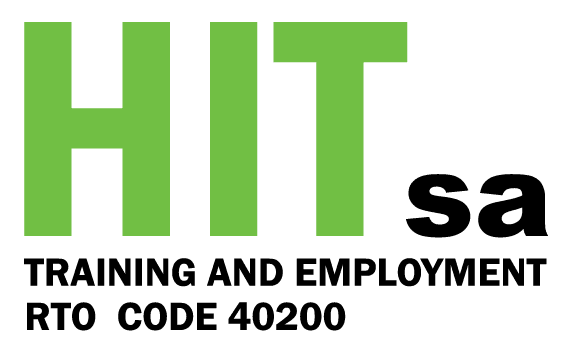HITsa Training and Employment – Policy and Procedure
Child Protection / Mandatory Reporting
No: HITP0059/10
Issued: 22.05.2007
Reviewed: 17.01.2022
Purpose:
All education and child development staff are considered mandated notifiers under the Children’s Protection Act. There is a legal obligation for mandated notifiers to notify the Department for Child Protection of all suspected cases of child abuse or neglect within their professional context.
Staff should also consider it their ethical duty to report experiences outside of their professional context. HITsa believe that all staff and trainers that will interact with children should be considered mandated reporters.
Areas affected:
HITsa Training and Employment staff and sites
General:
HITsa has a requirement to promote the wellbeing of children, to identify risks to children, to implement procedures to work with statutory authorities to respond and support abused or neglected children, and to prevent further harm to children.
This policy has been developed in consideration of the moral and legal obligations to provide child safe environments and to reduce the risk of harm and neglect to children.
Screening
All persons occupying or acting in a prescribed position (whether as an employee, volunteer, agent, contract or subcontractor) for HITsa will provide the organisation with a current (less than 1-year old) Police Clearance as well as a valid Child-Related Employment Screening issued by the Department for Communities and Social Inclusion (DSCI) Screening unit upon commencement of employment.
The Executive Officer of HITsa may, at any time, as the authority thinks necessary or desirable for establishing or maintaining child safe environments, obtain a Police Clearance on any person who
- Occupies or acts in a prescribed position (whether as an employee, volunteer, agent, contractor or subcontractor) for or on behalf of HITsa
- HITsa must ensure that information about the criminal history contained in reports obtained for this purpose are dealt with in accordance with the relevant standards
- If a person comes into possession, during relevant employment, of information about the criminal history of another, the person must not disclose the information except as may be required by or authorised under law.
All applications for employment as a trainer and/or assessor must be ratified by the Directors and/or Financial Controller. It is at the discretion of HITsa to consult with a Legal Firm/Representative throughout the process and should consider the following criteria when evaluating the relevance of an individual’s criminal convictions, and/or pending charges, to an application for employment:
- the scope of the individual’s criminal history
- the nature of the offence(s) and the relationship of the offence(s) to the position/activity or other decision under consideration
- the period that has elapsed since the offence(s) took place
- whether the offence(s) was/were committed as a child, juvenile or adult
- any mitigating or extenuating circumstances; and
- general character since the offence(s),
A final decision to deny appointment/engagement will not be made unless the appointee has had the opportunity to:
- discuss their criminal convictions (where the discussion takes place in person, a support person is permitted)
- verify that it relates to him/her
- verify its accuracy or provide details that they wish to be considered in relation to the matter or withdraw their application (in writing) for engagement or involvement in each position.
Following a reasonable assessment of the individual’s criminal conviction/s or pending charge/s, together with appropriate consultation with the appointee, a recommendation will be made to the Executive Officer as to whether the application for employment was successful. The Executive Officer will be responsible for informing the individual.
Where a decision has been made to not appoint a person because of a criminal conviction or pending charge, the individual shall be informed in writing of the decision.
Reporting
Outcomes or actions from which children need protection include neglect, physical abuse, sexual abuse, domestic violence and psychological harm. These are all reportable offences.
What are reasonable grounds?
You do not need to have proof to report any concerns you have about the safety of a child under 16 or a young person. You do not need permission from parents or caregivers to make a report; nor do they need to be informed that a report is being made. If you made a report in good faith, you cannot be held legally liable – regardless of the outcome of the report. Your identity will remain confidential unless you need to give evidence if the matter goes to court.
What is mandatory reporting?
Mandatory reporting describes the legal obligation of certain professionals and community members to report incidences of child abuse. These people are called “mandated reporters” and they MUST report to Child Protection Services if they believe on reasonable grounds that a child needs protection. Penalties may apply to mandated reporters who fail to report suspected abuse.
A notification under this section must be accompanied by a statement of the observations, information and opinions on which the suspicion is based. A person does not necessarily exhaust his or her duty of care to a child by giving a notification under this section.
Note: Under the law you are only mandated within your professional context. In relation to your experiences after hours you have no mandate to report, however, you may consider that you have an ethical duty to do so.
The following is the procedure to follow should any employee have concerns.
Advise Executive Officer, or in his/her absence, the Financial Controller.
The Executive Officer will keep a record of all discussions about a student with whom there is a concern. If a belief has been formed by a staff member that sexual or physical abuse has taken place a “Mandatory Reporting Report” must be completed and filed in the Executive Officer’s office.
The staff member and the Executive Officer will contact the Child Abuse Report Line to make an official notification on the Child Abuse Report Line, likely questions will include
- Do you know the child’s name, age and address?
- Are you able to describe the injury/abuse/neglect (either current or previous)?
- Are you aware of the current situation and the whereabouts of the child, parent or caregiver, and the person who has abused or neglected the child?
- When did you become aware of the abuse?
All incidents to be monitored, and any subsequent signs or indications of abuse are also to be reported.
When you call the Child Abuse Report Line, the worker will talk to you about the concerns that you have. They will ask you about details of the child and their family (such as who the family members are, where people live) as well as why you are concerned about the child. All information reported to the Child Abuse Report Line is assessed and a decision is made about which matters need to be responded to, and how.
The reports are referred to the Families SA District Centre which is nearest to where the child lives. Social workers from the District Centre may contact the child and the family to discuss with them what might be happening. Often, police and other professionals may be involved, depending on what the circumstances are.
Families SA will speak to the people involved to assess the circumstances of children and their families. Families SA may also assist families to access services so they can provide better care for their children or make safe care arrangements for children if required.
People who report their concerns about children are entitled to know how their concern will be dealt with by Families SA. The Families SA social worker should provide feedback to you, but you can also contact the Child Abuse Report Line if you are concerned about the progress of your notification.
Documentation
All reports, information sheets and subsequent discussions and information are to be recorded and remain strictly confidential. All documentation will be filed in the Executive Officer’s office.
Staff must document details in writing as to the time, place, circumstance and description of the incident/events.
Factual information and observations must include dates. Patterns of behaviour should be established – use dates, track behaviour. Include attendance, explained and unexplained absences. All notes in diaries, etc must be collated and passed onto the Executive Officer.
Abuse and Neglect – the Children’s Protection Act, 1993 states: “Abuse or neglect”, in relation to a child, means-
Sexual abuse of the child; or physical or emotional abuse of the child, or neglect of the child, or the extent that-
(I) the child has suffered, or is likely to suffer, physical or psychological
injury detrimental to the child’s wellbeing; or
(ii) the child’s physical and psychological development is in jeopardy,
and “abused” and “neglected” has a corresponding meaning;
Child means a person under the age of 18.
All staff and trainers who are likely to meet young people or children during their employment will be required to complete this training.













